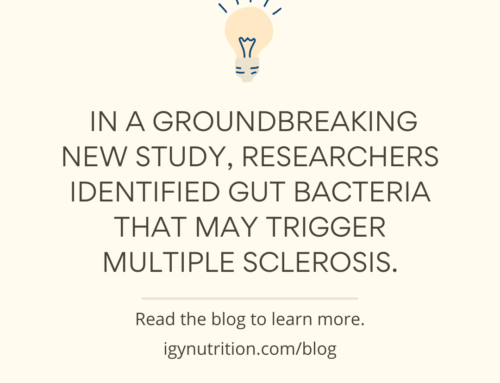Have you ever felt alone? After the 2020 pandemic, most of us would probably answer “yes.”
It’s normal to feel lonely now and then, but – believe it or not – consistent isolation can have negative health impacts.
Regular social engagement is essential for your mental and physical health, whether you are a homebody or a social butterfly.
Let’s dive into the scientific reasons behind why that is.
Interacting with Your Intestine
Last month, a study published in Frontiers in Psychiatry showed that loneliness is correlated with low gut microbiome diversity – a negative health marker.
The researchers compared 184 adult participants’ microbiome composition to their self-perceived rates of loneliness. The researchers collected participants’ fecal samples and responses to a survey on loneliness, wisdom, compassion, social support, and engagement.
The study found a correlation between high loneliness scores and low microbiome diversity. It found that the inverse was true as well. High wisdom and compassion scores are correlated to diverse microbiomes.
Several other studies found similar results. Why might this be?
Some theorize that being socially disconnected reduces exposure to various microbes – thereby decreasing microbiome diversity. Others have proposed that those who feel lonely often have other mental health issues for which they take microbiome-altering medications.
We still don’t know whether loneliness causes poor gut health or whether poor gut health causes loneliness – the study looked at correlation, not causation.
Though more studies are needed to evaluate the mechanisms behind these findings, it’s a safe bet to keep up your social interaction to ensure mental and physical health.
Nobody Wants a Lonely Lumen
You might be thinking – what’s so important about microbiome diversity?
Housing a variety of gut microbes provides various benefits. Some microbes produce vitamins, some break down fiber… the list goes on. Not surprisingly, higher gut microbiome diversity is linked to better emotional well-being too.
In short: diverse microbiomes are beneficial to hosts. But that’s not the end of the story. Homogeneous gut microbiomes, those that are not diverse, seem to be harmful to hosts.
Gut microbiomes low in diversity have been implicated in diseases like obesity, inflammatory bowel disease, and mental disorders. Low microbiome diversity also seems to cause mental health issues like depression, bipolar disorder, and anxiety.
Gut microbiome diversity is not worth glancing over.
Social Gut-Together
You may have heard of the gut-brain-axis – in a nutshell, it’s the exchange of biochemical communication between the brain and the gut.
Ever had butterflies in your stomach? That’s just one example of the gut-brain axis at work.
The gut is connected to a variety of other bodily systems, too, including the endocrine, nervous, and immune systems.
When there are changes to any of these systems, it can impact all of the others, positively or negatively, as is shown by the loneliness study we just discussed.
The connection between digestion and other systems underlines the importance of gut health for overall health.
While the pandemic posed a barrier to in-person social interactions, restrictions are starting to lift as people receive vaccines. Once you can safely socialize in person, replace the weekly Zoom or Facetime with a get-together – after all, it’s good for your health!
Tag us in your social gatherings at @igynutrition on Instagram to show us how your gut health journey is going.




